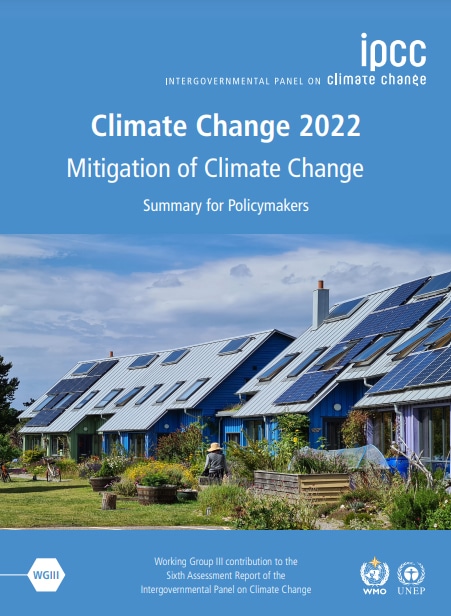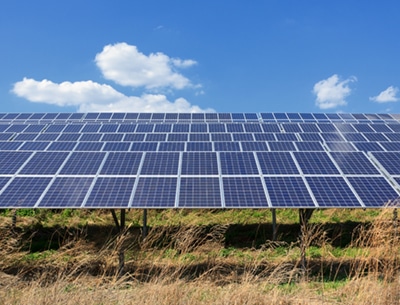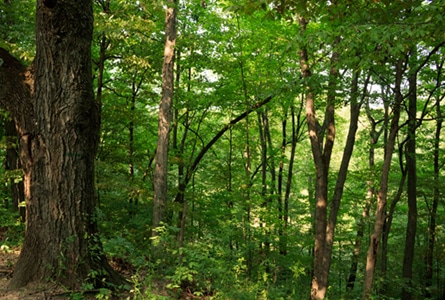
The third and final installment of the sixth United Nations Intergovernmental Panel on Climate Change (IPCC) report, published on April 4th, 2022, explains in the starkest scientific terms yet that we already have the scientific understanding and technology to avoid catastrophic climate change. We, as a society, are simply failing to use those tools. The only major barriers standing in the way of progress are political.
UN secretary general António Guterres brought some welcome Greta Thunberg-esque energy to the discussion, saying the report is “a litany of broken promises” and “a file of shame, cataloguing the empty pledges that put us firmly on track towards an unlivable world.”
“The jury has reached a verdict. And it is damning,” he said. “We are on a fast track to climate disaster.”
This third report follows two previous installments. Rebecca Esselman and I commented on the second installment in an op-ed the Detroit Free Press. The previous IPCC reports made it clear that dire consequences are coming unless we take rapid action at all scales of government and in all economic sectors, from local policies to international agreements. The science is clear. The effects of climate change are clear, and in this installment, the IPCC makes the solutions clear.
The report is comprehensive and describes many ways we can reduce emissions, but a few categorical actions take priority:

Stop burning fossil fuels.
We have to stop burning fossil fuels as rapidly as possible. Once carbon is emitted into the atmosphere, it’s effectively permanent on the timescales we need to consider. There are no take-backs and do-overs, and we can’t engineer clever technology to find a way around it on a global scale.
Build as much wind and solar power as possible.
Energy sources like wind and solar are now economically viable, if not preferable, and are becoming rapidly cheaper. In many regions of the globe, wind and solar are already less expensive than other options since they require less infrastructure and simpler supply chains to maintain them as energy sources.

Stop cutting down trees, and protect natural lands.
What stands out to me in the report is that limiting development and protecting natural lands is critical. Globally, land protection is second only to solar power in its potential to reduce carbon emissions. This is an action we can and must take throughout the Huron River watershed. Our wetlands and healthy forests sequester carbon from the atmosphere, filter toxins from the air and water, all while helping to reduce flood risks and erosion.
Communities should strongly prioritize development in already developed areas, and they should set goals to permanently protect half of all land types within their jurisdiction from development. For every acre of land developed, an acre of similar land should be set aside for the benefit of future generations of people and wildlife.
Take collective action. No one can do it alone.
There are many other things we need to do. We need to proliferate transportation networks with electric vehicles and sustainable mass transit options. We need to make buildings and homes as efficient as possible. We need to pay more attention to methane emissions, and we need to massively invest in research to eliminate the most difficult emissions. It can be overwhelming, but another takeaway from the report it that we all must act collectively as members of communities. We need policy solutions to fix obsolete and broken systems. Simply put, we need to vote for climate action at all levels.
What you can do now:
Thankfully, there are several opportunities in the Huron River watershed to do that right now.
- Resilient Washtenaw is working with county residents to create a collaborative vision for carbon neutrality by 2035. You help by providing feedback.
- Oakland County will be initiating a Climate Action Plan this summer.
- Learn about the priorities and key goals we’ve identified in the MI Healthy Climate Plan.
- On upcoming ballots, support funding for Ann Arbor’s ambitious A2Zero plan to cut carbon emissions and set example for cities everywhere.
- On upcoming ballots, support land preservation initiatives in Northfield Township, Dexter Township, and Scio Township.
- Most importantly, vote for elected officials that will support robust climate action. Once they’re in office, hold them to their promises, or vote for someone else who will.



